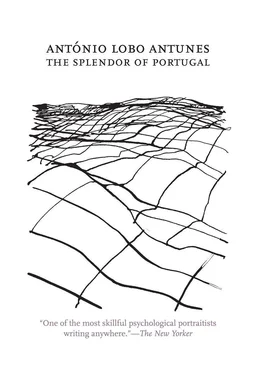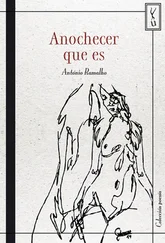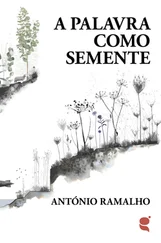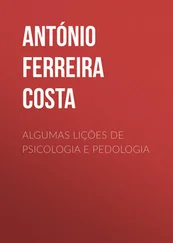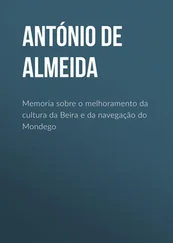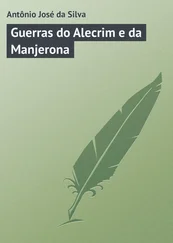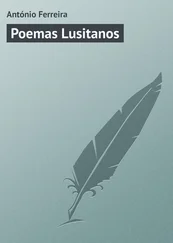António Antunes - The Splendor of Portugal
Здесь есть возможность читать онлайн «António Antunes - The Splendor of Portugal» весь текст электронной книги совершенно бесплатно (целиком полную версию без сокращений). В некоторых случаях можно слушать аудио, скачать через торрент в формате fb2 и присутствует краткое содержание. Год выпуска: 2011, Издательство: Dalkey Archive Press, Жанр: Современная проза, на английском языке. Описание произведения, (предисловие) а так же отзывы посетителей доступны на портале библиотеки ЛибКат.
- Название:The Splendor of Portugal
- Автор:
- Издательство:Dalkey Archive Press
- Жанр:
- Год:2011
- ISBN:нет данных
- Рейтинг книги:3 / 5. Голосов: 1
-
Избранное:Добавить в избранное
- Отзывы:
-
Ваша оценка:
- 60
- 1
- 2
- 3
- 4
- 5
The Splendor of Portugal: краткое содержание, описание и аннотация
Предлагаем к чтению аннотацию, описание, краткое содержание или предисловие (зависит от того, что написал сам автор книги «The Splendor of Portugal»). Если вы не нашли необходимую информацию о книге — напишите в комментариях, мы постараемся отыскать её.
The Splendor of Portugal — читать онлайн бесплатно полную книгу (весь текст) целиком
Ниже представлен текст книги, разбитый по страницам. Система сохранения места последней прочитанной страницы, позволяет с удобством читать онлайн бесплатно книгу «The Splendor of Portugal», без необходимости каждый раз заново искать на чём Вы остановились. Поставьте закладку, и сможете в любой момент перейти на страницу, на которой закончили чтение.
Интервал:
Закладка:
“Do you like me?”
she never hugged me, never told me
“Come here”
never laid me down next to her
not money, not power, but blacks with no money or power to speak of
she’d sit up, startled, and turn on a lamp to see what time it was, her hair as I’d never seen it before, a curl falling in front of her face, the smell of sleep, tiny eyes open just a crack, surrounded by her eyelids, no, not her eyelids, a web of tiny swollen veins, my father just a lump facing the wall, his back to us, with no facial features, no limbs, a bracelet on the ground, an upside-down shoe, lungs that deflated and seemed like they’d never fill up again, thank God they filled back up with air, with a rattling noise that sounded like someone shaking a piggy bank, my mother would turn off the lamp in a vague gesture of protest, the bracelet and the shoe would disappear, the window would reappear, the ashen halo of the plantation, the tiny fires down in the workers’ quarters, the house a cave in which the drapes slowly flapped their enormous wings
“Do you like me?”
not a house, just a space in which the furniture and fixtures could go to ruin, wobbly towel racks, doors loose in their frames, shaky shelves, cracked hinges, the little corn stalks walking across the carpet, the troops, Mom, they’re going to rob me, they’re going to take me with them, lock me up in a hut, hang me from a mango tree, the flagstones and overgrown grass of the cemetery in the hallway, crucifixes, a fragment of a stone angel
“Isilda”
me tugging at my mother’s bedsheets in the middle of the night, grown-ups are so big
“Do you like me?”
if I put on one of their shirts I can’t even see my fingers, I have to run three steps for every step they take, they can pick me up as if I weighed nothing, I don’t weigh anything, the slightest breeze would
“Do you like me?”
I’m not tall enough to see myself in the mirror on the wall, my mother with the lamp turned off, abandoning me
“What kind of question is that?”
the golden rain tree won’t stop moaning, it won’t stop, I’m not afraid that they’ll kill me
I’m afraid of the pickup trucks that finally came to a stop here on the Corimba highway, exactly like the ones in which the laborers arrived from Huambo, the foremen refused to take one or two of them because they were too old or they were pregnant or throwing up, my father would check them out, pressing his palm to their kidneys, tell them to walk up and back, sign invoices, pay the driver, the pickups bouncing down the road toward Malanje, four hundred kilometers from Malanje to Luanda, six hundred kilometers from Luanda to Nova Lisboa, I’m cold
when my daughter Clarisse asked
“Do you like me?”
I got annoyed, pushing her hand away
“What kind of question is that?”
afraid as well, afraid
“What kind of question is that?”
the pickup trucks in Corimba, the government troops opening the tailgates of the pickup trucks, some of them wore colored ties, mirror-lens sunglasses with a metal frame, as if they were made of silver
speaking of mirrors how long has it been since I had a good look at myself, since I’ve gauged how old I look, how much hair I’ve lost, my wrink
one of them in patent-leather ankle boots, like a groom
pregnant I’d bet on it pregnant
always hanging behind the others, polishing the cracked patent leather with the cuff of his shirt, not threatening us in the least, he’d talk to us, press his palm against our kidneys, tell us to walk up and back, if they pressed their palms against my kidneys and asked me to walk up and back they’d refuse to take me, I wouldn’t last more than an hour with a grain sack, I can’t walk through all those thorns, the cotton bolls prick my fingers, you try to grab it and it pricks you, the pickup trucks on the Corimba highway to take us to Baixa de Cassanje
what we came in search of in Africa
a climate different from my climate, the earth a different color, the river
what we came in search of in Africa wasn’t money or power it was
the foremen dividing us up shoving us toward deserted huts
“You you”
which need some work, some adobe to patch them up, grass for the lawn, pots and pans rented from the company store, beer, fish, and tobacco ten times more expensive then anywhere else, don’t put Rui in a home, Lena who was raised in the slums, one bucket of water for everyone, one chicken for everyone, she understands, dressing up the way poor people dress up, cheap, gaudy stuff, keep your money, I said keep your money, don’t put Rui in a home
hospitals where they treat people like
pointing toward the pickup trucks
“You you”
the one with patent-leather ankle boots helped me up, slapping my backside
Josélia
and then paused to polish his boots with a corner of his handkerchief
why do they treat Africans like humans when they aren’t human at all I’ve never seen an African grieve at the death of a child
he hit a Bailunda who’s around my age, and another one, and a third, and they, those deformed creatures, those ducks, geese
not humans
as their kerchiefs slipped off their heads, exposing the web of cracked, wrinkled skin on the napes of their necks, their white, kinky hair, they didn’t complain at all
not humans
not a single lament, not a single protest, not a single word, the soldiers riding on the fenders, the hoods, the running boards of the pickups, sunglasses with metal frames like silver, the Corimba highway gliding across their mirrored lenses, tree trunk after tree trunk, remains of thatched huts, a torn piece of fabric, the innards of combat vehicles, felled cannons, a lone schoolhouse wall, suddenly I realized that there weren’t any birds, it wasn’t that there weren’t any people around, except for the corpses being torn to pieces by the dogs
I’m not afraid that they’ll kill me I’m not afraid of
it was that there weren’t any birds, vultures, that species of long-legged seagull in Mussulo that flies behind the trawlers or sits on the beach between the coconut palms
the face they’ll make as they kill me wobbly towel racks, doors loose in their frames, shaky shelves, cracked hinges my mother with the lamp turned off abandoning me
“What kind of question is that?”
I wanted to explain to my children and to the government soldiers that even on my tiptoes I can’t see myself in the mirror on the wall, behind which my parents hid my birthday present for months
my children spoke to each other without hearing me, the government soldiers didn’t doff their berets in my presence
what we came in search of in Africa
Carlos Clarisse Rui bidding me farewell on the Corimba highway smiling as they wave good-bye, Rui bigger than his brother and sister, the doctor in Malanje showing me the test results, epilepsy, I was the one who cleaned up his urine, held his arms down during his fits, his face bright red, his knees twisted, a look of manliness in his naked body that terrified me, a mulatto, an invalid, and a whore who’ll end up with the other whores out on the island waiting for their clients to show up, the garden lit up, the back porch lit up, great big blue canopies, orchids, roses, my husband in a rented double-breasted suit, misbuttoned, you could tell that it wasn’t new from the stitches that were coming undone on the breast pocket, even the carnation in his lapel looked withered to me, petals that had wilted over the years, worn-out after dozens of weddings of foremen and managers, poor things, weddings of poor people
Читать дальшеИнтервал:
Закладка:
Похожие книги на «The Splendor of Portugal»
Представляем Вашему вниманию похожие книги на «The Splendor of Portugal» списком для выбора. Мы отобрали схожую по названию и смыслу литературу в надежде предоставить читателям больше вариантов отыскать новые, интересные, ещё непрочитанные произведения.
Обсуждение, отзывы о книге «The Splendor of Portugal» и просто собственные мнения читателей. Оставьте ваши комментарии, напишите, что Вы думаете о произведении, его смысле или главных героях. Укажите что конкретно понравилось, а что нет, и почему Вы так считаете.
